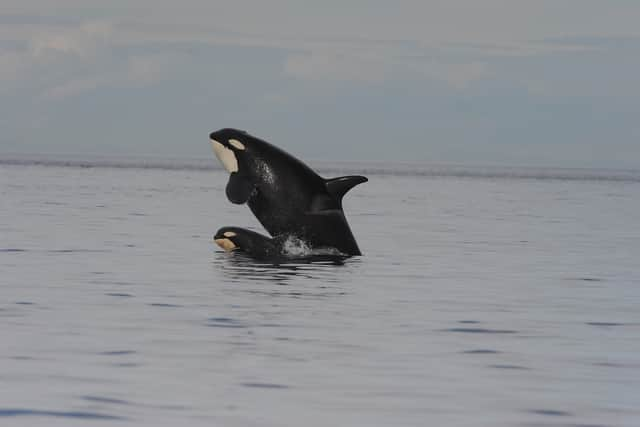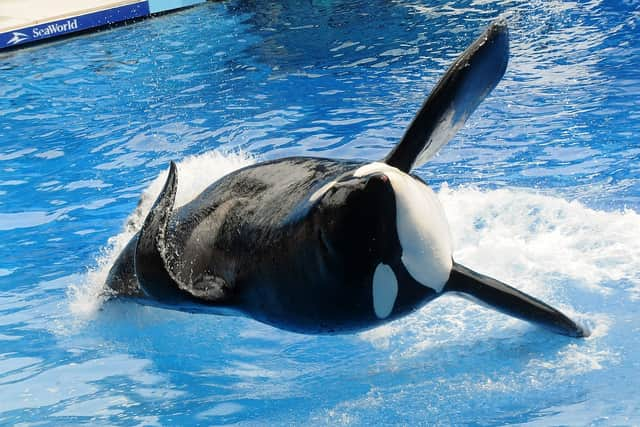Why are orcas called killer whales? How many are left in the world, are they dangerous, are they going extinct
and live on Freeview channel 276
A new study of orca mothers has discovered that “mothers pay a high cost” in raising sons. The study, conducted by the universities of Exeter, York and Cambridge, and the Centre for Whale Research has revealed that each living son cut a mother’s likelihood of successful breeding by about half.
Dr Michael Weiss, of the Centre for Research in Animal Behaviour at the University of Exeter, said: “Our previous research has shown that sons have a higher chance of survival if their mother is around. In this study, we wanted to find out if this help comes at a price. The answer is yes – killer whale mothers pay a high cost in terms of their future reproduction to keep their sons alive.”
Advertisement
Hide AdAdvertisement
Hide AdThe approach could cause problems for orca populations, with only 73 southern resident orcas left in the wild. So, why are orcas called killer whales and how many are left in the world? Here’s everything you need to know.
Why are orcas called killer whales?
Orcas are believed to have been given the name killer whales by sailors who witnessed big orcas kill other whales. According to Wild Orca, they were originally called “Whale Killers” but that over time this name then switched to killer whales.


According to SeaWorld, there are 10 different types of orcas which can be found in both the northern and southern hemisphere, with each different ecotype considered a single species.
How many orcas are left in the world?
There are predicted to be approximately 50,000 orcas left in the world, however according to SciQuest, this number could be as high as 80,000 as orcas are hard to track because they are distributed in both the northern and southern hemisphere.
Advertisement
Hide AdAdvertisement
Hide AdHere are how many orcas there are estimated to be in the world by region:
- Antarctic: 25,000
- Tropic Pacific: 8,5000
- Northeast Pacific: 2,250 to 2,700
- Norway: 500 to 1,500
- Japan: in the 2000s, the Fisheries Agency of Japan recorded 2,321 orcas in their waters
Are orcas endangered?
The populations in some regions have been declining sharply, with climate change, overfishing and pollution cited to be the cause. Orcas in the southern region have been listed as endangered under the Endangered Species Act in the Southern Resident Distinct Population Segment (DPS) since 2005. The species observed in the latest study by the universities of Exeter, York and Cambridge, and the Centre for Whale Research have only 73 orcas remaining in the wild.


How long can orcas live?
According to Wild Orca, the life expectancy of orcas can vary between species and gender. New research suggests that the average lifespan for females is mid-50s, whilst it is mid-30s for males. Big orcas who hunt mammals can expect to live up to 10 years longer due to there being more available prey.
Are orcas dangerous?
Despite their name and the notoriety that surrounds them, orcas are generally not dangerous, with only a few recorded cases of them attacking or killing humans in the wild. According to Whale Facts, there has been no known case of an orca eating a human, with the mammal only attacking if it feels threatened. However, there have been cases where orcas that are kept in captivity have attacked their trainers. Since the 1970s there have been over 30 incidents which resulted in human injury or death.
Comment Guidelines
National World encourages reader discussion on our stories. User feedback, insights and back-and-forth exchanges add a rich layer of context to reporting. Please review our Community Guidelines before commenting.
